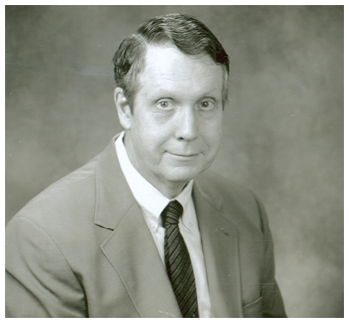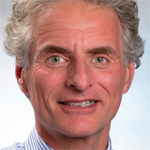
In Memoriam: Harold Edward Paulus, MD
Harold Edward Paulus, MD, professor of medicine (emeritus) at University of California, Los Angeles (UCLA), died April 5, 2019. During his nearly 90 years of life, he contributed hugely to clinical science and patient care in rheumatology.
Hal was crazy smart. And if he had an idea, that idea had to be nurtured and expanded. He thought that T lymphocytes mediated synovitis in rheumatoid arthritis, and he set up a group at UCLA to do several rounds of thoracic duct lymph drainage. Patients’ T cells dropped in numbers, and their RA improved considerably. Thus, we credit him with proving that lymphocytes play a major role in human disease and with inspiring the race to develop therapies that suppress T and/or B cells (think CTLA4-Ig and anti-CD20) as treatment for this disease.
His next major idea was questioning the idea that reporting the mean or median of joint counts in an RA clinical trial was not the best way to measure outcome. He wanted to know what proportion of patients got a little better, a lot better, etc. He presented this idea to colleagues around the world; it was taken up by appropriate committees of the ACR, and the result was the development of the ACR 20, 50 and 70% improvement official outcome measures—which became the standard for clinical trials for many years, and are still used. At UCLA we call it the Paulus principle.
Another idea Hal had was that results of clinical trials, which for some years were done primarily in academic centers, should be expanded and improved by tracking data from rheumatologists in community practice. He created a consortium of practicing private rheumatologists across the U.S.—outstanding clinicians whom he had trained—which is still used today (Corrona). These physicians enter sequential data on patients with RA for whom they are providing care—for no fee.
Hal was a brilliant teacher—beloved here at UCLA and throughout the world, where his many trainees set up their programs in academia or community practice or healthcare analysis. He was also a brilliant clinician. I know because I filled in for him when he went on sabbatical. His patients were totally dedicated to his management plans; there was no talking them into doing it a different way—just renew his prescriptions and say when he would be back. His retirement party was flooded with grateful patients.
In private life, Hal was as wonderful as in professional life. He married the girl he fell in love with in college (Rita, who predeceased him)—after saving enough money to buy a car so he could impress her enough to ask for a date. They have a son and a daughter, two grandsons, and a great-granddaughter. They put much energy into parenting and into improving life in their community.
UCLA rheumatology is missing a much admired and adored colleague and leader. He lives on in everything we all do to help improve the lives of our patients.
